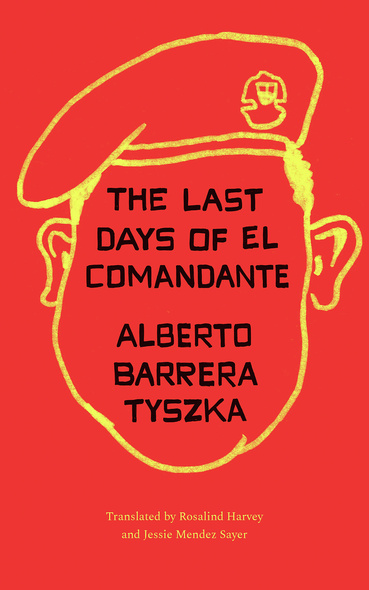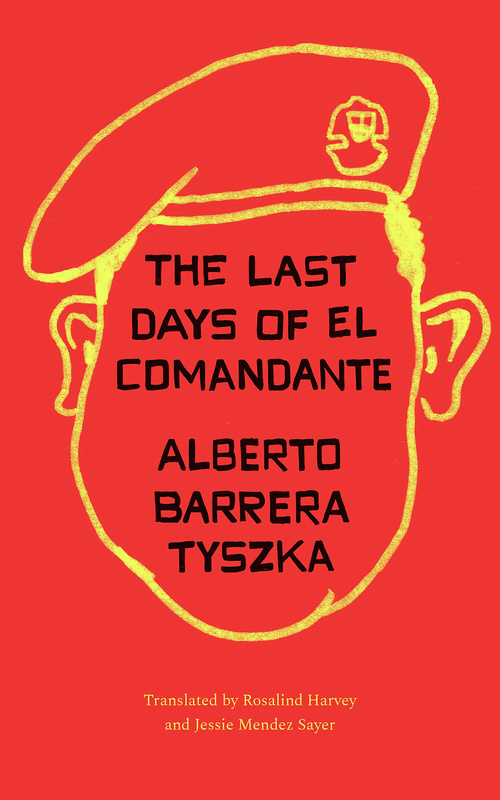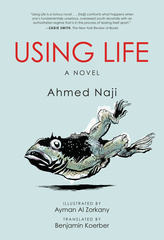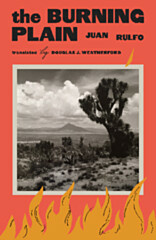The Last Days of El Comandante
2021 — Honorable Mention, Best Fiction Book Translation – International Latino Book Awards, Latino Literacy Now
Winner of the Tusquets Prize in 2015 and previously translated into French, German, Dutch, Polish, and Portuguese, Alberto Barrera Tyszka’s Patria o muerte is now available in English.
President Hugo Chávez’s cancer looms large over Venezuela in 2012, casting a shadow of uncertainty and creating an atmosphere of secrets, lies, and upheaval across the country. This literary thriller follows the connected lives of several Caracas neighbors consumed by the turmoil surrounding the Venezuelan president’s impending death.
Retired oncologist Miguel Sanabria, seeing the increasingly combustible world around him, feels on constant edge. He finds himself at odds with his wife, an extreme anti-Chavista, and his radical Chavista brother. These feelings grow when his nephew asks him to undertake the perilous task of hiding cell-phone footage of Chávez in Cuba. Fredy Lecuna, an unemployed journalist, takes a job writing a book about Chávez’s condition, which requires him to leave for Cuba while his landlord attempts to kick his wife and son out of their apartment. Nine-year-old María, long confined to an apartment with a neurotic mother intensely fearful of the city’s violence, finds her only contact with the outside world through a boy she messages online.
Barrera Tyszka is one of the most important novelists of his generation.
The Last Days of El Comandante stands out for its courage in telling—from the daily experiences of a group of characters—the Venezuelan reality in a less than accommodating way, and for the author's ability to do so with an absorbing narrative rhythm that reflects the anguish and complications of lives conditioned by the hysteria and tensions of a country keeping watch over its charismatic leader.
Mr. Tyszka is a versatile writer who merits wider attention…[The Last Days of El Comandante blends] brisk, ironic parables with dryly disenchanted commentary. The novel is...valuable especially for Sanabria's insights into the destructively politicized nature of Chávez's death. His illness was something that happened to his body, in private, but the mythology he spun from it was something that happened to everyone else. As Sanabria remarks, with customary concision, 'The other face of illness is miracle.'
There is nothing quite like fiction to grasp the true nature of an oppressive regime. Novels allow us to witness the effect of oppression on the day-to-day activities of ordinary people, and on their often failed attempts to enjoy some sort of private life in the face of the regime’s intrusions. [The Last Days of El Comandante shows] how tenuous those attempts have become in Venezuela over the past decade...The Last Days of El Comandante is...enthralling...revelatory...with its skilfully wrought atmosphere of suspense and energetic prose, well translated by Rosalind Harvey.
The stories Barrera Tyszka presents [in The Last Days of El Comandante] offer a solid slice of the uncertainty of Venezuelan life of the time…Barrera Tyszka is particularly good on the everyday—and also on the odd Cuban connection and the complex interplay between Cuban (national and personal) interests and Venezuelan ones at the time.
Rosalind Harvey and Jessie Mendez Sayer’s translation is nothing short of exquisite…The Last Days of El Comandante will be a riveting, tragic read for those who are well versed in authors from Borges to Poniatowska, as well as those who are new to Latin American literature in general. In a world seizing in the throes of the COVID-19 pandemic, increasingly battered by authoritarian politics, and buttressed by dreams of immanent socialist utopias, the novel’s intimate portrayal of a country’s slow shattering will resonate globally in its exploration of how people struggle to deal with violence, desperation, hope, and fear, as events drag them into an unthinkable future.











